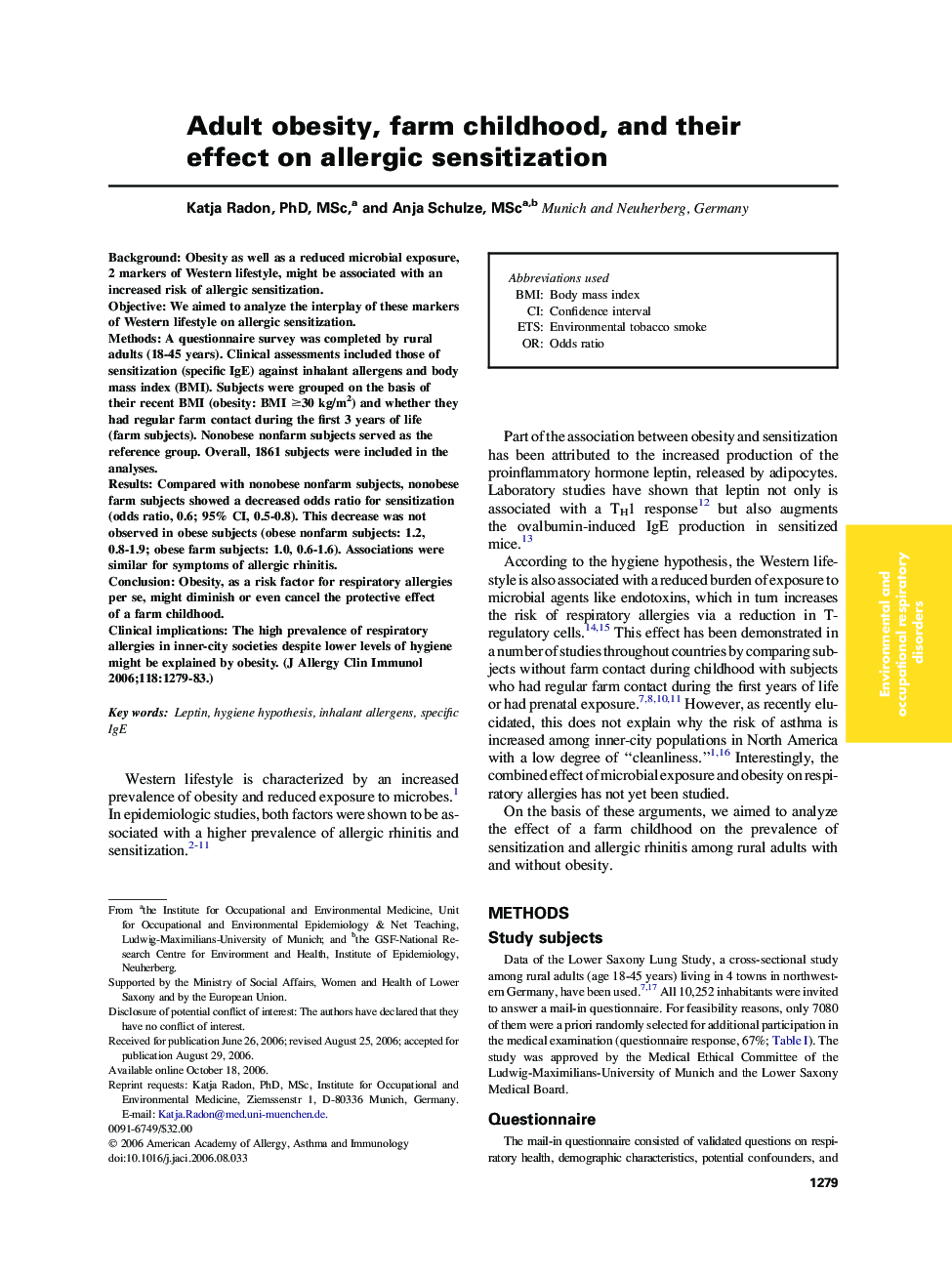| Article ID | Journal | Published Year | Pages | File Type |
|---|---|---|---|---|
| 3202225 | Journal of Allergy and Clinical Immunology | 2006 | 5 Pages |
BackgroundObesity as well as a reduced microbial exposure, 2 markers of Western lifestyle, might be associated with an increased risk of allergic sensitization.ObjectiveWe aimed to analyze the interplay of these markers of Western lifestyle on allergic sensitization.MethodsA questionnaire survey was completed by rural adults (18-45 years). Clinical assessments included those of sensitization (specific IgE) against inhalant allergens and body mass index (BMI). Subjects were grouped on the basis of their recent BMI (obesity: BMI ≥30 kg/m2) and whether they had regular farm contact during the first 3 years of life (farm subjects). Nonobese nonfarm subjects served as the reference group. Overall, 1861 subjects were included in the analyses.ResultsCompared with nonobese nonfarm subjects, nonobese farm subjects showed a decreased odds ratio for sensitization (odds ratio, 0.6; 95% CI, 0.5-0.8). This decrease was not observed in obese subjects (obese nonfarm subjects: 1.2, 0.8-1.9; obese farm subjects: 1.0, 0.6-1.6). Associations were similar for symptoms of allergic rhinitis.ConclusionObesity, as a risk factor for respiratory allergies per se, might diminish or even cancel the protective effect of a farm childhood.Clinical implicationsThe high prevalence of respiratory allergies in inner-city societies despite lower levels of hygiene might be explained by obesity.
